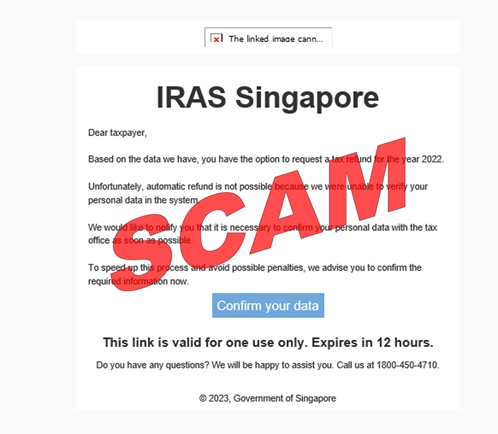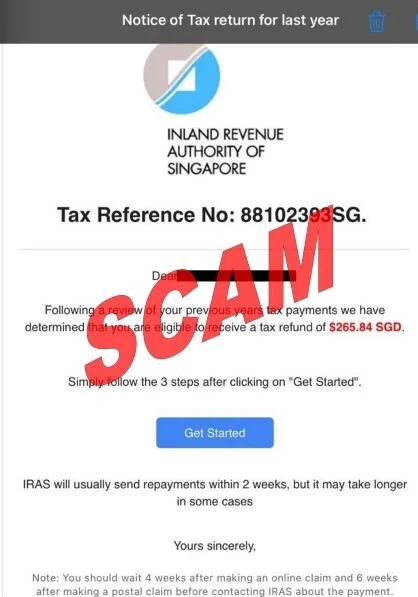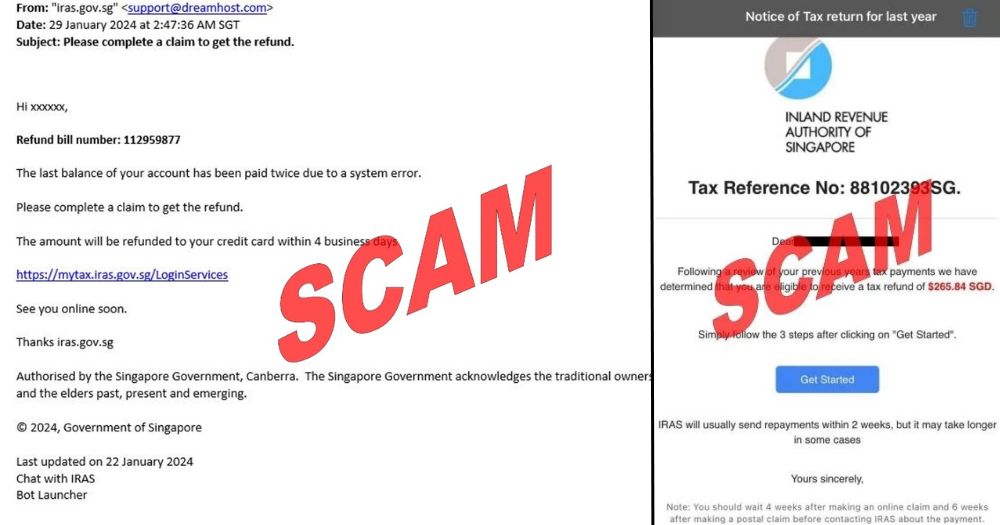The Inland Revenue Authority of Singapore (IRAS) issued an advisory on Jan. 30, 2024, to warn the public about a resurgence of phishing emails that impersonate the tax authority.
Targets taxpayers under the pretext of offering tax refunds
This is how the scam might play out: Taxpayers receive an email from scammers who impersonate IRAS. The scam email offers tax refunds to induce the taxpayer to click on a link in the email.
The link directs them to a fake website where taxpayers will be asked to provide their personal information including Singpass credentials and credit card details.
Examples of scam emails
Here are some examples of phishing emails that impersonate IRAS:
 Photo from IRAS
Photo from IRAS
 Photo from IRAS
Photo from IRAS
 Photo from IRAS
Photo from IRAS
IRAS advisory to public
In the advisory, IRAS advised taxpayers to stay vigilant against phishing scams.
"Do not be deceived by fake SMSes, emails and WhatsApp messages in spoofing scams," said the statutory board.
Taxpayers should only click on links with “iras.gov.sg” or ”go.gov.sg”.
IRAS advised taxpayers to use the myTax Portal when filing and paying taxes as the portal is secured by Singpass login.
The agency also emphasised that it does not solicit taxpayers’ personal details or any confidential information via email or unsecured web links.
If one receives a phishing email, they are advised to ignore the email and refrain from providing any personal, credit card or bank account details. They should not make payments or follow any instructions in the email.
Those affected by the scam are advised to lodge police reports, IRAS said.
Last December, at least 10 victims lost S$9,000 in slightly under two weeks after they were taken in by similar phishing emails that purported to be from IRAS.
The Singapore Police Force advised the public then to be wary of potential scams and verify with official sources if they are unsure.
Related articles
Cover images provided by IRAS
If you like what you read, follow us on Facebook, Instagram, Twitter and Telegram to get the latest updates.



